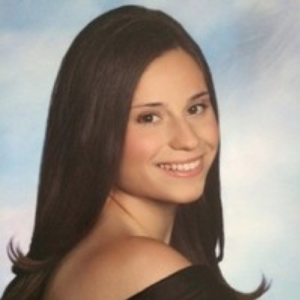We are excited to share the second installment of our 2020 Student Blog Series! The student blog series highlights original pieces authored by first-year law students at Villanova University Charles Widger School of Law. Read on for Alexandra Santulli’s contribution to the Student Blog Series.
Popular culture is a set of customs and practices that pervade society and acquire widespread admiration, primarily from younger generations, due to celebrity influence and media exploitation of these “ideals.” Given that the influence of pop culture has such a direct and significant impact on society, those who impact pop culture should carefully consider how their platform shapes social norms and communicates seemingly acceptable behaviors to the world. In a digital age, where mass media dominates and manipulates viewers’ perceptions of reality, it is critical to understand the messages that are delivered and how such content can unscrupulously depict narratives of real-life crises. A prime example of this is displayed in Lifetime’s popular television show, The Client List, where the protagonist, Riley, is a single mother who provides sexual services to “special” clientele at “The Rub” massage parlor, for large cash tips. Although the show portrays how the pressures of financial hardship and parenting can confine vulnerable women in the commercial sex industry, overall, The Client List, shamelessly glorifies sexual exploitation and further validates the existence of the sex trade.
In the beginning of the show, Riley is greeted by her acquaintance, Selena. Selena arrives in a new car and carries a stylish handbag, appearing to live in the lap of luxury, when she suggests Riley apply for a job at “The Rub.” From the onset, Selena’s appearance and demeanor suggest that the sexual services she provides is a lucrative business that affords her a lavish lifestyle, rather than a dangerous form of exploitation. In reality, victims of sexual exploitation are not lured into the commercial sex trade for the opportunity to purchase new cars and designer goods. Rather, many are coerced and forced by the feeling that there is no other way to obtain their most basic needs, such as food, clothing, and shelter. It is important to remember that prostitution is not a noble line of work that allows for money and access, but is actually a system of oppression that strips women of their wholeness and identity.
The show continues with its deceiving depictions of prostitution by presenting it as a fun, kinky act. Riley is frequently depicted prancing in new lingerie and role-playing, as she learns the sexual preferences of her clients. Similarly, the sex buyers in the show are attractive, charming, and, most confusingly, characterized in a sympathetic and delicate light. During their private sessions, some of the sex buyers reveal their relationship issues and personal insecurities, making the audience feel almost sorry for them. These scenes grossly misrepresent the reality of prostitution by portraying sentiments that the reality of this industry can be honorable and romantic, as Riley is seen as “helping” her clients.
However, the devastating truth is that sex buyers are often extremely violent and use forceful and coercive tactics to abuse women in their most helpless states. The most striking disparity between this show and reality is the difference in power dynamics. In The Client List, the buyers appear to be sad and vulnerable, while Riley is in the superior position to help her clients. Research, however, definitively indicates that these men often come from powerful backgrounds, using their wealth, education, status, and abundance of resources to “objectify, dominate, and control victims for their satisfaction.”
Finally, Georgia, the owner of “The Rub”, is portrayed as a fairy godmother of sorts, as she “looks after” the girls and seems to extend a semblance of hope. However, behind the “magic” she claims to provide, Georgia actually manipulates the trust of her employees by selling them to members of the client list (i.e. sex buyers). By exploiting these women, Georgia perpetuates the existence of the sex trade, providing buyers with sexual services and upholding a market for these illegal and exploitative activities to persist. Moreover, Georgia is hell-bent on protecting the client list, valuing the sex buyers and her so-called business more than the lives of her “employees.” For these reasons, rather than being perceived as a gentle guardian, as she is characterized in the show, Georgia instead should be regarded as a trafficker. Traffickers, like Georgia, search for desperation in vulnerable individuals and prey on those vulnerabilities, knowing the victims will succumb to their false sign of hope, in order to hold them into the sex trade.
Unfortunately, The Client List, is only one example of how pop culture can tragically alter the cruel realities of prostitution and human trafficking. This misleading illustration of the sex industry falsely establishes “acceptable” norms and discredits the pain and suffering that women in this industry experience every day. To counteract this harmful influence, it is necessary to shed light on these evils and promote justice for innocent victims.
Alexandra Santulli is a first-year student at the Villanova University Charles Widger School of Law. Alexandra is originally from Washington Township, New Jersey, however has spent the last four years at Fairfield University in Connecticut where she earned her Bachelor of Science degree in Accounting and Economics. Upon graduation in 2022, Alexandra hopes to use her legal knowledge to help counter injustices and empower others to find their voice.



